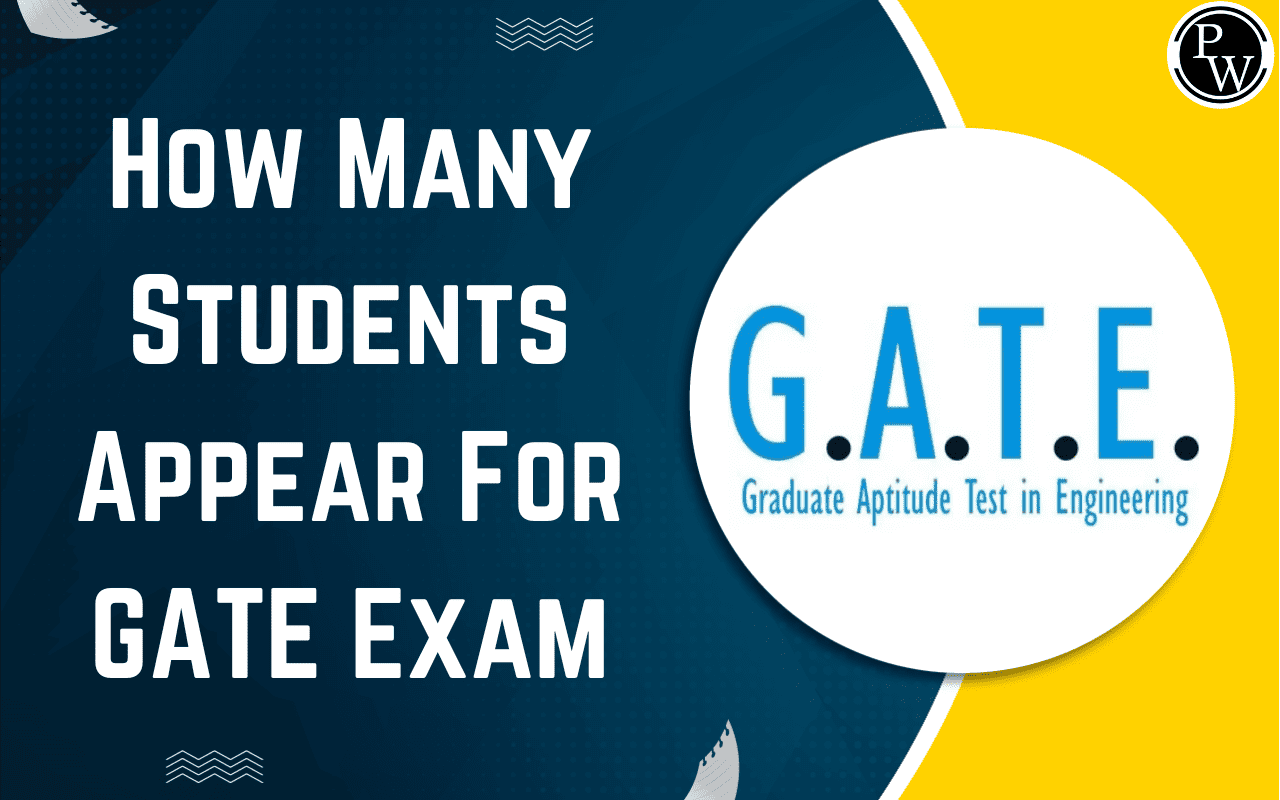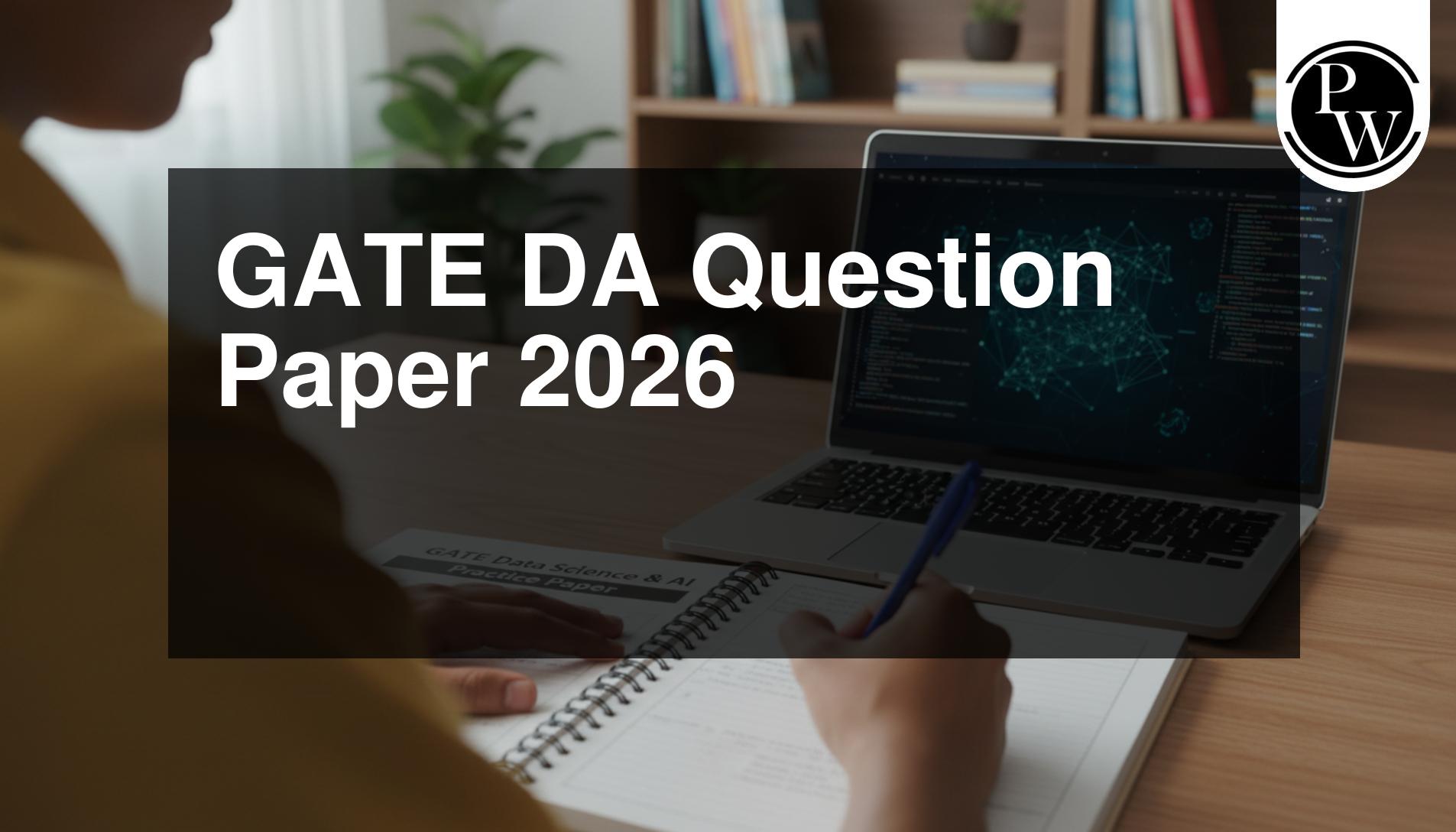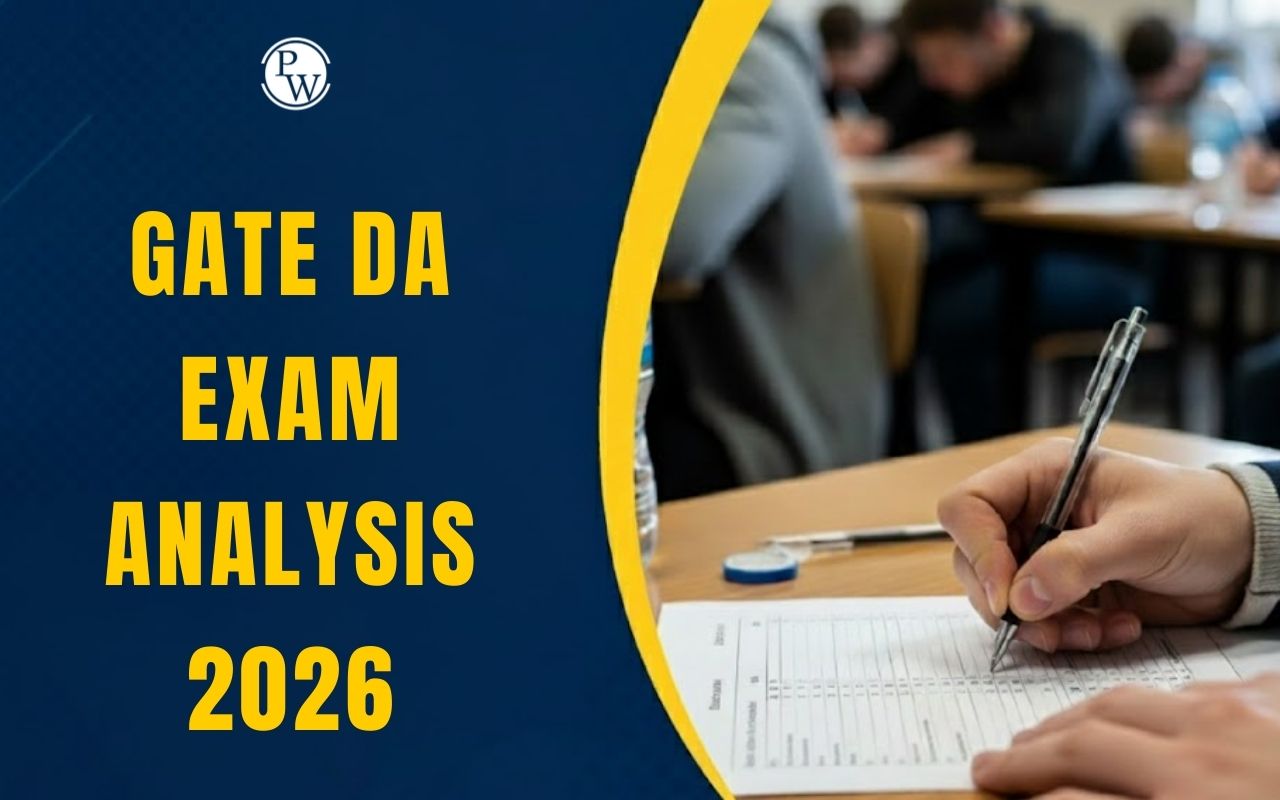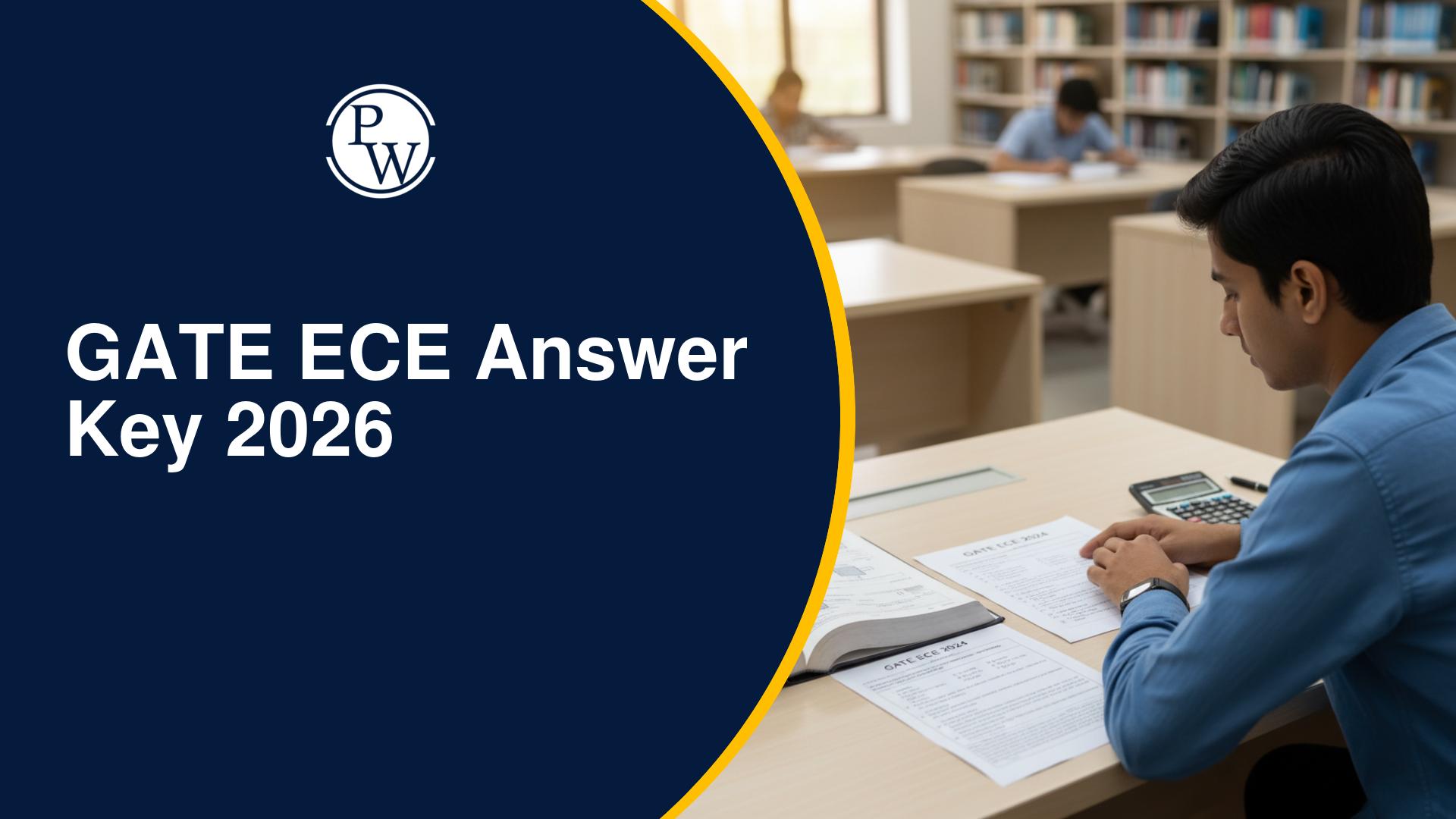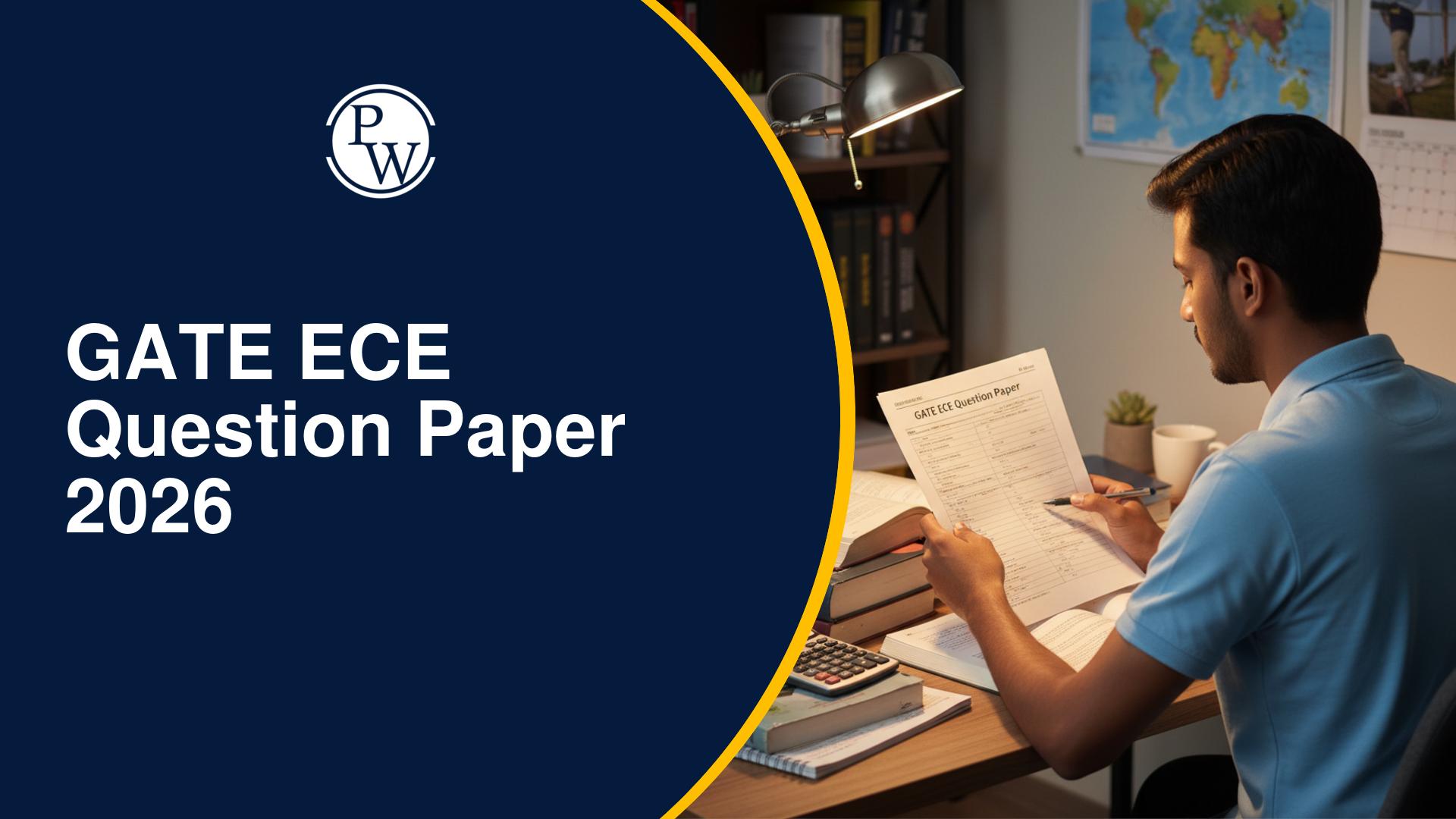
GATE Civil Engineering: Civil Engineering is a popular and oldest specialization of Engineering that deals with the design, construction, and maintenance of the physical and naturally built structures such as roads, bridges, dams, airports, sewage systems, pipelines, buildings structures, and railways.
Civil Engineering professionals seek decent career opportunities in PSU Jobs and also admission to ME/M. Tech and Ph.D. programs in most reputed institutions such as IITs, NITs, IIITs, and others.
Qualifying Graduate Aptitude Test In Engineering in Civil Engineering boosts the career of aspiring engineers and creates a numerous opportunities for promising careers for them. The GATE Civil Engineering Exam is considered for postgraduate and doctoral programs to highly reputed institutions and recruitment in prominent public sector companies. For more information on GATE Civil Engineering, candidates must read this article thoroughly.GATE Civil Engineering Exam Overview
The GATE Civil Engineering Exam is a national-level examination conducted for post-graduate admissions in NIT/IIT , GATE CE Exam caters opportunity to aspiring engineers to showcase their knowledge and skills in various subjects of Civil Engineering. Candidates must note, that the Civil Engineering Paper for the GATE Exam consists of a total of 65 questions having MCQs, MSQs and Numerical types. Aspirants provided a time duration of 3 hours to solve the complete question paper.
For the next academic year 2026, Gate Civil Engineering exam will be conducted for 30 different subjects including Civil Engineering. Candidates who want to appear for the GATE CE Exam 2026 must register on the GOAPS Portal once the registration started.. In order to take the GATE Civil Engineering Exam 2026, candidates must hold B.E./B.Tech./B.Sc. (Engg) degree and currently studying in the third year.
Candidates who want to explore a bright and successful career in the Civil Engineering field must enroll for the GATE Exam and secure the highest score to grab its benefits. Through GATE CE Score, admission to postgraduate programs is offered as well as jobs in premier public sector undertakings. Here, a brief overview of the forthcoming GATE Civil Engineering Exam 2026 is outlined for the ease of aspiring applicants:
| GATE Civil Engineering Exam 2026 Overview | |
| Level | National |
| Exam Mode | Computer-Based Test (CBT) |
| Exam Duration | 3 hours |
| Total Marks | 100 |
| Sections |
|
| Number of Questions | 65 |
| Marking Scheme |
|
| Negative Marking | Applicable (for MCQ & MSQ) |
| GATE Scorecard Validity | 3 years |
| GATE Official Website | www.gate2026.iitr.ac.in |
GATE Civil Engineering Scope
Civil Engineering is a highly demandable profession as infrastructure projects, building construction, and other construction projects are expanding day by day. The need for skilled civil engineers is rapidly increasing to manage and control constructional works. Civil Engineering professionals receive various job roles including project engineer, site engineer, architect, environmental engineer, teacher, and consultants.
Civil Engineering graduates can opt for government jobs as well as private sector jobs which offer a competitive salary package and good career growth. There are numerous government departments, PSUs, and private sector companies hire talented and skilled Civil Engineers offering a handsome salary. The GATE Civil Engineering Scope can be found by aspiring individuals on this webpage.
GATE Civil Engineering Eligibility Criteria
To appear for the GATE Civil Engineering exam, candidates must fulfill certain eligibility criteria. It is important for candidates to carefully review the eligibility criteria before applying for the GATE Civil Engineering exam discussed in this section:
| Particulars | Details |
| Nationality | There are no restrictions for nationality to appear for the GATE Exam. Indian nationals as well as citizens of other countries are eligible for the GATE Examination. |
| Educational Qualification | Applicants must complete BE/B. Tech (Civil Engineering) or currently studying in the third or final year. |
| Age Limit | Not Specified |
GATE Civil Engineering Syllabus
Aspirants who are planning to take the GATE Civil Engineering exam must review the detailed syllabus to be aware of the important topics for all the subjects. The comprehensive GATE Civil Engineering Syllabus including topic-wise coverage is tabulated below:| GATE Civil Engineering Syllabus Section 1 - Engineering Mathematics | |
| Subjects | Topics |
| Linear Algebra | Matrix algebra; Systems of linear equations; Eigenvalues and Eigenvectors. |
| Calculus | Functions of a single variable; Limit, continuity, and differentiability; Mean value theorems, local maxima, and minima; Taylor series; Evaluation of definite and indefinite integrals, application of definite integral to obtain area and volume; Partial derivatives; Total derivative; Gradient, Divergence and Curl, Vector identities; Directional derivatives; Line, Surface, and Volume integrals. |
| Ordinary Differential Equation (ODE) | First order (linear and nonlinear) equations; higher-order linear equations with constant coefficients; Euler-Cauchy equations; initial and boundary value problems. |
| Partial Differential Equation (PDE) | Fourier series; separation of variables; solutions of one-dimensional diffusion equation; first and second-order one-dimensional wave equation and two-dimensional Laplace equation. |
| Probability and Statistics | Sampling theorems; Conditional probability; Descriptive statistics – Mean, median, mode, and standard deviation; Random Variables – Discrete and Continuous, Poisson and Normal Distribution; Linear regression. |
| Numerical Methods | Error analysis. Numerical solutions of linear and non-linear algebraic equations; Newton’s and Lagrange polynomials; numerical differentiation; Integration by trapezoidal and Simpson’s rule; Single and multi-step methods for first-order differential equations. |
| GATE Civil Engineering Syllabus Section 2 - Structural Engineering | |
| Subjects | Topics |
| Engineering Mechanics | System of forces, free-body diagrams, equilibrium equations; Internal forces in structures; Frictions and its applications; Centre of mass; Free Vibrations of undamped SDOF system. |
| Solid Mechanics | Bending moment and shear force in statically determinate beams; Simple stress and strain relationships; Simple bending theory, flexural and shear stresses, shear centre; Uniform torsion, Transformation of stress; buckling of column, combined and direct bending stresses. |
| Structural Analysis | Statically determinate and indeterminate structures by force/energy methods; Method of superposition; Analysis of trusses, arches, beams, cables, and frames; Displacement methods: Slope deflection and moment distribution methods; Influence lines; Stiffness and flexibility methods of structural analysis. |
| Construction Materials and Management | Construction Materials: Structural Steel – Composition, material properties and behavior; Concrete – Constituents, mix design, short-term and long-term properties. Construction Management: Types of construction projects; Project planning and network analysis – PERT and CPM; Cost estimation. |
| Concrete Structures | Working stress and Limit state design concepts; Design of beams, slabs, columns; Bond and development length; Prestressed concrete beams. |
| Steel Structures | Working stress and Limit state design concepts; Design of tension and compression members, beams and beam-columns, column bases; Connections – simple and eccentric, beam-column connections, plate girders, and trusses; Concept of plastic analysis – beams and frames. |
| GATE Civil Engineering Syllabus Section 3 - Geomatics Engineering | |
| Subjects | Topics |
| Soil Mechanics | Three-phase system and phase relationships, index properties; Unified and Indian standard soil classification system; Permeability – one-dimensional flow, Seepage through soils – two-dimensional flow, flow nets, uplift pressure, piping, capillarity, seepage force; Principle of effective stress and quicksand condition; Compaction of soils; One-dimensional consolidation, time rate of consolidation; Shear Strength, Mohr’s circle, effective and total shear strength parameters, Stress-Strain characteristics of clays and sand; Stress paths. |
| Foundation Engineering | Sub-surface investigations – Drilling boreholes, sampling, plate load test, standard penetration and cone penetration tests; Earth pressure theories – Rankine and Coulomb; Stability of slopes – Finite and infinite slopes, Bishop’s method; Stress distribution in soils – Boussinesq’s theory; Pressure bulbs, Shallow foundations – Terzaghi’s and Meyerhoff’s bearing capacity theories, effect of water table; Combined footing and raft foundation; Contact pressure; Settlement analysis in sands and clays; Deep foundations – dynamic and static formulae, Axial load capacity of piles in sands and clays, pile load test, pile under lateral loading, pile group efficiency, negative skin friction. |
| GATE Civil Engineering Syllabus Section 4 - Water Resources Engineering | |
| Subjects | Topics |
| Fluid Mechanics | Properties of fluids, fluid statics; Continuity, momentum and energy equations and their applications; Potential flow, Laminar and turbulent flow; Flow in pipes, pipe networks; Concept of boundary layer and its growth; Concept of lift and drag. |
| Hydraulics | Forces on immersed bodies; Flow measurement in channels and pipes; Dimensional analysis and hydraulic similitude; Channel Hydraulics – Energy-depth relationships, specific energy, critical flow, hydraulic jump, uniform flow, gradually varied flow, and water surface profiles. |
| Hydrology | Hydrologic cycle, precipitation, evaporation, evapotranspiration, watershed, infiltration, unit hydrographs, hydrograph analysis, reservoir capacity, flood estimation and routing, surface runoff models, ground water hydrology – steady state well hydraulics and aquifers; Application of Darcy’s Law. |
| Irrigation | Types of irrigation systems and methods; Crop water requirements – Duty, delta, evapotranspiration; Gravity Dams and Spillways; Lined and unlined canals, Design of weirs on a permeable foundation; cross drainage structure. |
| GATE Civil Engineering Syllabus Section 5 - Environmental Engineering | |
| Subjects | Topics |
| Water and Wastewater | Basics of water quality standards – Physical, chemical and biological parameters; Water quality index; Unit processes and operations; Water requirement; Water distribution system; Drinking water treatment. Sewerage system design, quantity of domestic wastewater, primary and secondary treatment. Effluent discharge standards; Sludge disposal; Reuse of treated sewage for different applications. |
| Air Pollution | Types of pollutants, their sources and impacts, air pollution control, air quality standards, Air quality Index and limits. |
| Municipal Solid Wastes | Characteristics, generation, collection and transportation of solid wastes, engineered systems for solid waste management (reuse/recycle, energy recovery, treatment, and disposal). |
| GATE Civil Engineering Syllabus Section 6 - Transportation Engineering | |
| Subjects | Topics |
| Transportation Infrastructure | Geometric design of highways – cross-sectional elements, sight distances, horizontal and vertical alignments. Geometric design of railway Track – Speed and Cant. Concept of airport runway length, calculations, and corrections; taxiway and exit taxiway design. |
| Traffic Engineering | Traffic studies on flow and speed, peak hour factor, accident study, statistical analysis of traffic data; Microscopic and macroscopic parameters of traffic flow, fundamental relationships; Traffic signs; Signal design by Webster’s method; Types of intersections; Highway capacity. |
| Highway Pavements | Highway materials – desirable properties and tests; Desirable properties of bituminous paving mixes; Design factors for flexible and rigid pavements; Design of flexible and rigid pavement using IRC codes. |
| GATE Civil Engineering Syllabus Section 7 - Geotechnical Engineering | |
| Subjects | Topics |
| Geotechnical Engineering | Principles of surveying; Errors and their adjustment; Maps – scale, coordinate system Distance and angle measurement – Leveling and trigonometric leveling; Traversing and triangulation survey Total station; Horizontal and vertical curves. Photogrammetry – scale, flying height; Remote sensing – basics, platform and sensors, visual image interpretation; Basics of Geographical information system (GIS) and Geographical Positioning system (GPS). |
GATE Civil Engineering Exam Pattern
The GATE Civil Engineering exam pattern follows a well-defined pattern to assess the comprehensive understanding and technical knowledge of candidates in the field of Civil Engineering. The GATE Exam is conducted in an online computer-based format and consists of multiple-choice questions (MCQs) as well as numerical answer type (NAT) questions.
| GATE 2026 Civil Exam Pattern | |
| Branch | Civil Engineering |
| Paper Code | CE |
| Mode of the Exam | Online |
| Total Marks | 100 |
| Number of Questions | 65 |
| Types of Questions |
|
| Number of Sections | There are three sections-
|
| Section-wise Weightage |
|
| Duration of Time | 3 hours (180 minutes) |
| Design of Questions |
|
| Sectional Time-Limit | None |
| Negative Marking Scheme for GATE Civil 2025 |
|
GATE Civil Engineering Subject Wise Weightage
The Civil Engineering discipline paper for GATE Exam includes various subjects such as Engineering Mathematics, Irrigation & Hydrology, Fluid Mechanics, Environmental Engineering, Geotechnical Engineering, Structural Engineering, Transportation Engineering, R.C.C., Geomatics Engineering, Construction Materials and Management, Soil Mechanics, Engineering Mechanics and General Aptitude. All the subjects carries specific weightage according to this the number of questions will be asked from them.
Aspirants can check the subject-wise weightage for Civil Engineering section is tabulated below:
|
GATE Civil Engineering Subject Wise Weightage |
|||||||
|---|---|---|---|---|---|---|---|
| Subjects | GATE 2019 | GATE 2020 | GATE 2021 | GATE 2022 | GATE 2023 Set-1 | GATE 2024 | GATE 2025 |
| Engineering Mathematics | 10.5% | 11.5% | 13% | 13% | 13% | 12% | 13% |
| Irrigation & Hydrology | 5.5% | 5.5% | 4% | 3% | 7% | 6% | 5% |
| Fluid Mechanics | 9% | 7.5% | 8% | 9% | 7% | 8% | 8% |
| Environmental Engineering | 9% | 11% | 11% | 10% | 11% | 10% | 11% |
| Structural Analysis | 4.5% | 6% | 6% | 8% | 5% | 6% | 5% |
| Geotechnical Engineering | 16% | 14.5% | 15% | 13% | 16% | 15% | 14% |
| Transportation Engineering | 9.5% | 11% | 9% | 7% | 6% | 8% | 7% |
| Geomatics Engineering | 6% | 14.5% | 5% | 8% | 4% | 5% | 6% |
| R.C.C. | 5% | 5% | 5% | 5% | 4% | 5% | 5% |
| Steel Structures | 5% | 2.5% | 3% | 2% | 3% | 3% | 3% |
| General Aptitude | 15% | 15% | 15% | 14% | 15% | 15% | 15% |
| Construction Materials & Management | 1% | 0.5% | 1% | 3% | 0% | 1% | 1% |
| Engineering Mechanics | 0.5% | 1% | 0% | 1% | 1% | 1% | 1% |
| Solid Mechanics | 3.5% | 4% | 2% | 2% | 7% | 5% | 6% |
GATE Civil Engineering Previous Year Papers
Candidates preparing for the GATE Civil Engineering Exam 2025 must practice the previous year papers as it serves the best tool to get familiar with the difficulty level of the exam, weightage of subjects, and to figure out important topics. The GATE Civil Engineering Previous Year Papers with Solutions will boost the preparation of candidates and help to secure top marks in the paper.
Candidates can review their preparation level by solving the last year question papers and prepare strategies to strengthen the weaker topics. For the ease of candidates, the GATE CE previous year question papers PDF are provided here:
| GATE Civil Engineering Previous Year Papers with Solutions PDF | ||
| Year of GATE Exam | GATE Question Paper PDF | GATE Solution PDF |
| GATE 2019 Civil Engineering Exam | GATE CE 2019 Shift 1 | Download Solution PDF |
| GATE CE 2019 Shift 2 | Download Solution PDF | |
| GATE 2020 Civil Engineering Exam | GATE CE 2020 Set 1 | Download Solution PDF |
| GATE CE 2020 Set 2 | Download Solution PDF | |
| GATE 2021 Civil Engineering Exam | GATE CE 2021 Session 1 | Download Solution PDF |
| GATE CE 2021 Session 2 | Download Solution PDF | |
| GATE 2022 Civil Engineering Exam | GATE CE 2022 Shift 1 | Download Solution PDF |
| GATE CE 2022 Shift 2 | Download Solution PDF | |
| GATE 2023 Civil Engineering Exam | GATE CE 2023 Set 1 | Download Solution PDF |
| GATE CE 2023 Set 2 | Download Solution PDF | |
| GATE 2024 Civil Engineering Exam | GATE CE 2024 Set 1 | Download Solution PDF |
| GATE CE 2024 Set 2 | Download Solution PDF | |
PW GATE Civil Engineering Notes
Physics Wallah has designed the exam oriented study notes to prepare for GATE Civil Engineering Examination in an effective manner covering the entire syllabus in a limited time-frame. The PW Civil Engineering Notes for GATE are prepared by highly qualified faculties to deliver the best content to aspirants.
The students are advised to follow the Physics Wallah's notes to gear up their exam preparation to achieve highest score in the upcoming examination. Candidates can access the subject-wise Civil Engg Notes for GATE 2025 preparation from the direct link provided here.
GATE Civil Engineering Cut Off
The GATE Civil Engineering Cut Off refers to minimum score needed to achieve by aspirants to pass the exam for getting admission to ME/M. Tech and Ph.D. courses, additionally the GATE Score is also accepted for providing PSU Jobs. Candidates must go through the previous year cut off trends to know the minimum marks required to secure to crack the paper. The category-wise previous year GATE Civil Cut Off are tabulated below:
|
Category |
General |
OBC |
SC/ST/PH |
| 2025 | 29.2 | 26.2 | 19.4 |
| 2024 | 28.3 | 25.4 | 18.8 |
| 2023 | 26.6 | 23.9 | 17.7 |
| 2022 | 30.4 | 27.3 | 20.2 |
| 2021 | 29.2 | 26.2 | 22 |
| 2020 | 32.9 | 29.6 | 21 |
|
2019 |
26.9 |
24.2 |
17.9 |
|
2018 |
26.9 |
24.2 |
17.9 |
|
2017 |
28.7 |
25.8 |
19.1 |
|
2016 |
25 |
22.5 |
16.6 |
|
2015 |
25 |
22.5 |
16.67 |
|
2014 |
26.57 |
23.91 |
17.71 |
|
2013 |
27.13 |
24.42 |
18.09 |
GATE Civil Engineering Books
Physics Wallah prepared the best quality books as per the level of the GATE Civil Engineering Exam to help aspirants ace the exam with a good score. Candidates must follow the PW Books for well-structured learning to cover the whole syllabus as per the latest trends of questions. The direct links to explore the books are given in the below table:
| PW GATE CE Books 2026 | |
| Book Name | Access Link |
| GATE Wallah Topicwise PYQ Combo: Civil Engineering + Engineering Mathematics & Aptitude | Click Here! |
| GATE Wallah Topic Wise Previous Year Questions-Civil Engineering | Click Here! |
GATE Civil Engineering Online Course
Aspirants who want to prepare for GATE Civil Engineering Exam effectively must enroll in PW GATE Online Courses 2026 to aid their studies. Physics Wallah courses are designed by prominent subject experts to cover the entire syllabus in an effective manner.
The course offers daily live sessions, high quality study materials, and online test series, with most valuable resources at an affordable cost to gear up the preparation of students. Candidates must follow the direct link given in the below table to explore the online batches by Physics Wallah to enhance your test preparation:
GATE Civil Engineering FAQs
Q. What is the GATE Civil Engineering Exam?
Q. What are the major subjects included under GATE Civil Engineering?
Q. What is the GATE Civil Engineering Paper Code?
Q. Is the GATE 2026 Exam Date announced?



